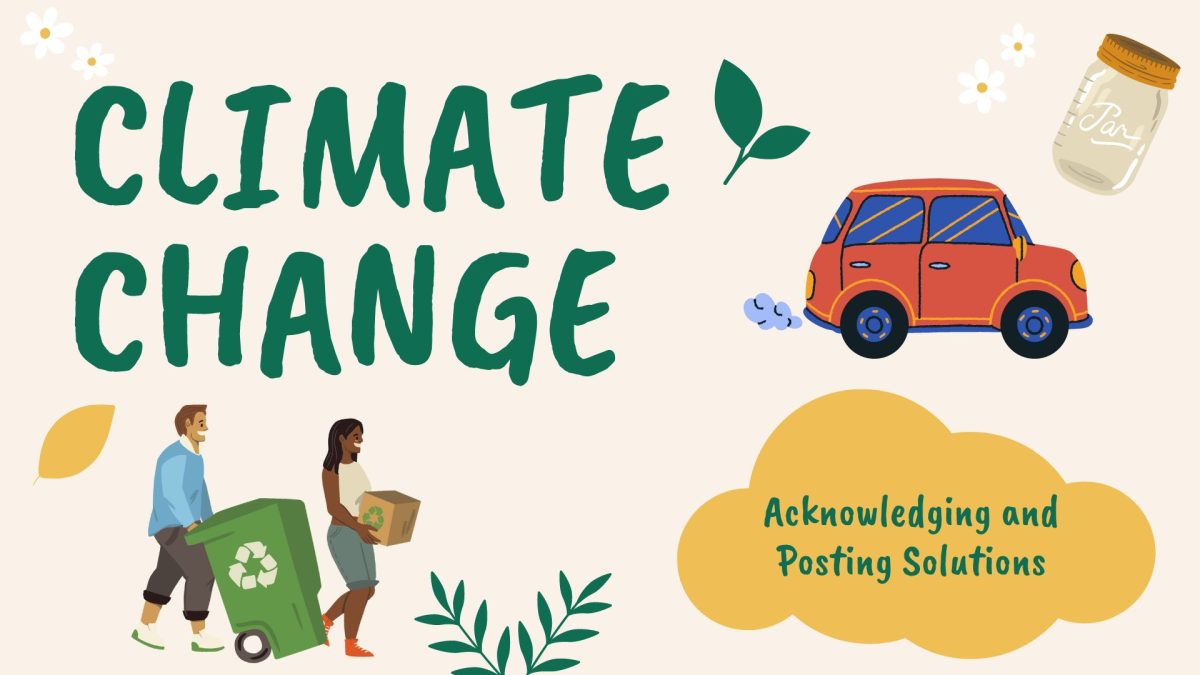As the city of Los Angeles burns under a smoke-filled sky, the detrimental effects of wildfires rage upon Southern California. This event is more than just a natural disaster; it is evidence of climate change.
Within these flames lies the undeniable connection between global warming and catastrophic weather events. Both droughts and heat waves have turned Southern California’s green landscapes to bleak wastelands. According to Daniel Swain, a climate scientist at the University of California Los Angeles, “weather whiplash is ramping up the risk of wildfire in California.” This whiplash is derived from the erratic swings between wet and dry weather conditions.
As students, we stand at the forefront of a crucial moment in history, one where our decisions today will impact the world we inherit. At the face of our concerns lies the critical dilemma of climate change.
The recent presidential election poses questions and sparks uncertainty about what the future holds in regards to climate policy. With President Elect Donald Trump’s victory, the United States will witness an extensive shift in its political landscape. What is currently a proactive climate-focused government will likely shift to one with opposite priorities. It is vital to understand how these political changes and policies could directly impact our efforts to mitigate climate change.
One of the most pertinent concerns is the likely rollback of critical environmental regulations. In the past, President Trump has been vocal about his plans to reduce regulations on business. This could entail repealing or eliminating regulations intended to reduce greenhouse gas emissions. According to NPR, in Trump’s first presidency, he signed an executive order to undo climate policies from the era of former President Barack Obama’s presidency. These policies include the Clean Power Plan, which was implemented to limit carbon emissions from power plants.
Another impactful shift is the United State’s stance on the Paris Agreement– an international treaty on climate change signed in 2016. In the past, Trump has vocalized skepticism regarding the agreement under the belief that it placed too much emphasis on aiding other countries. According to the New York Times, he stated, “I was elected to represent the citizens of Pittsburgh, not Paris,” thus making his intent to withdraw from the agreement evident.
In June 2017, Trump formally announced that the United States would end all participation in the Paris Treaty. It was not until President Joe Biden entered office that the United States re-entered the agreement in January 2021.
As Trump enters office, he will consult climate matters with Lee Zeldin, former United States Representative, who he has selected to lead the Environmental Protection Agency. During Zeldin’s run for governor of New York in 2022, he campaigned on expanding fossil fuel extraction. This directly contrasts the United States’ current environmental initiatives. As of this month, Biden is moving to ban all future offshore oil and natural gas drilling on the nation’s coasts, according to ABC News
Earthjustice president, Abigail Dillen states, “Zeldin’s loyalty to Donald Trump indicates he will gladly take a sledgehammer to EPA’s most recent lifesaving regulations, putting politica over science and endangering our communities.”
Additionally, government funding for climate/environmental research is expected to decrease. Trump has often taken a dismissive or indifferent stance regarding climate change which government funding will reflect.
“It is of grave concern to the research community that President Trump’s budget proposal– which would fund the agency at a 15-year low– values investments in defense above all other federal expenditures,” Benjamin Corb, public affairs director of the American Society for Biochemistry and Molecular Biology previously stated. Reduced funding could dismantle research efforts responsible for understanding climate change and developing solutions.
While these potential changes may seem daunting, they also present us with the opportunity to be environmentally conscious within our lives. Some potential ways to remain environmentally conscious include staying informed, advocating, and reducing your carbon footprint.
So, take the initiative to continuously educate yourself on matters regarding climate change in our government. It is crucial to use reliable sources such as the United Nations Climate Change Newsroom. As we educate ourselves and build dialogue around environmental concerns, we spark change and promote the understanding of critical subject matters in our nation.
Use your voice and power to advocate for climate policies and initiatives at the local, state, and federal levels. You can join national climate change-advocacy organizations such as 350, or local environmental organizations within our school like the Portsmouth High School Eco Club.
To reduce your carbon footprint, make sustainable choices throughout your daily life, such as avoiding single use plastics and limiting your food waste. These seemingly small everyday efforts culminate in substantial progress derived from countless sustainable choices made around the world.
The outcome of the recent election highlights the importance of our collective efforts to manage climate change. Despite the potential challenges ahead, it is vital that we remain steadfast in our devotion to fostering a sustainable future. It is only with the communal yearning and collective will of others that we can ensure our planet flourishes in the years to come.








